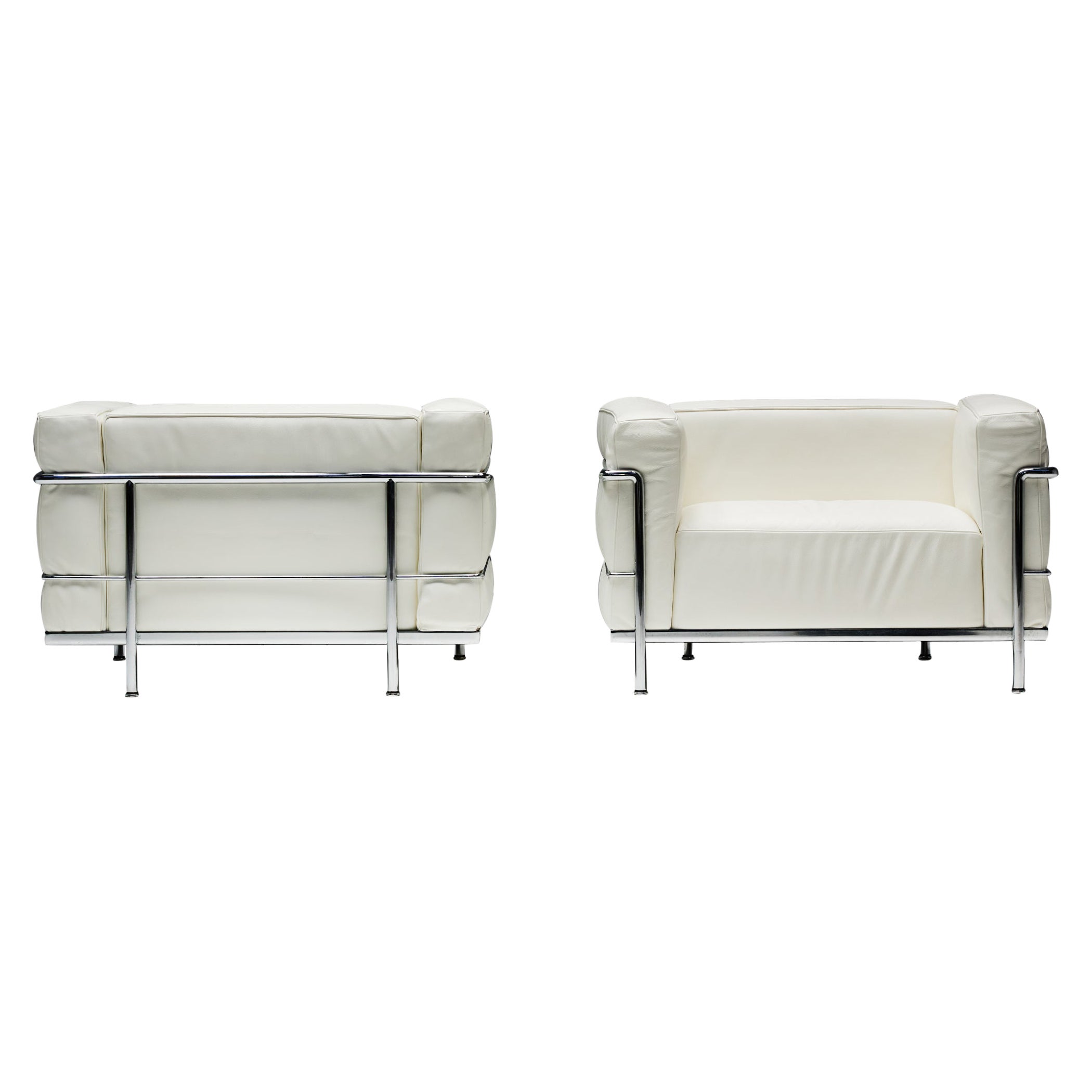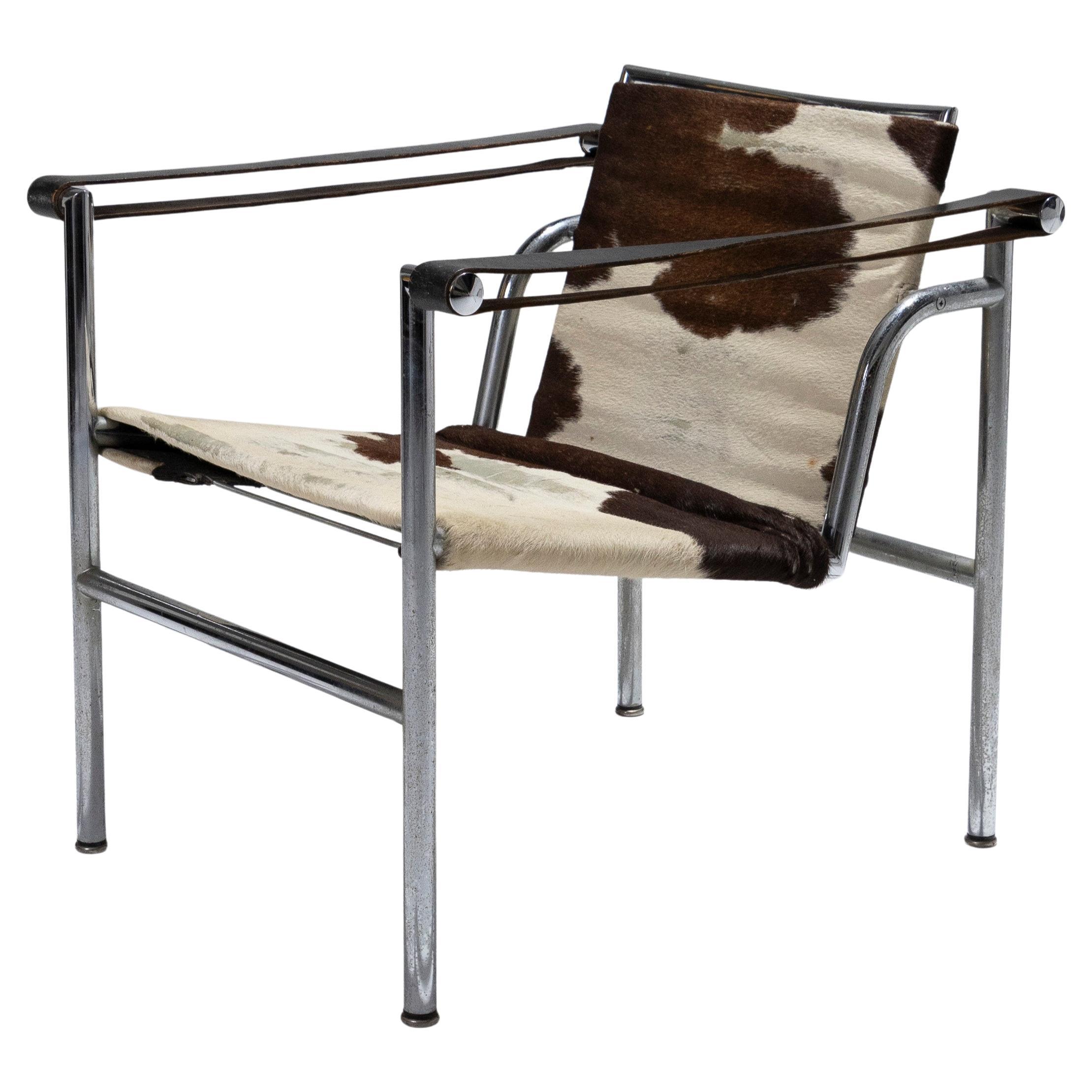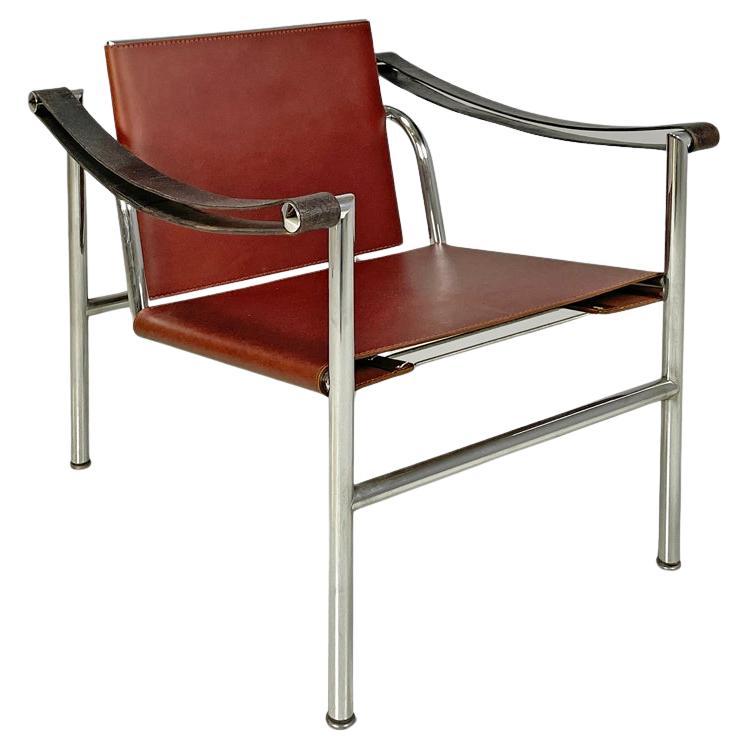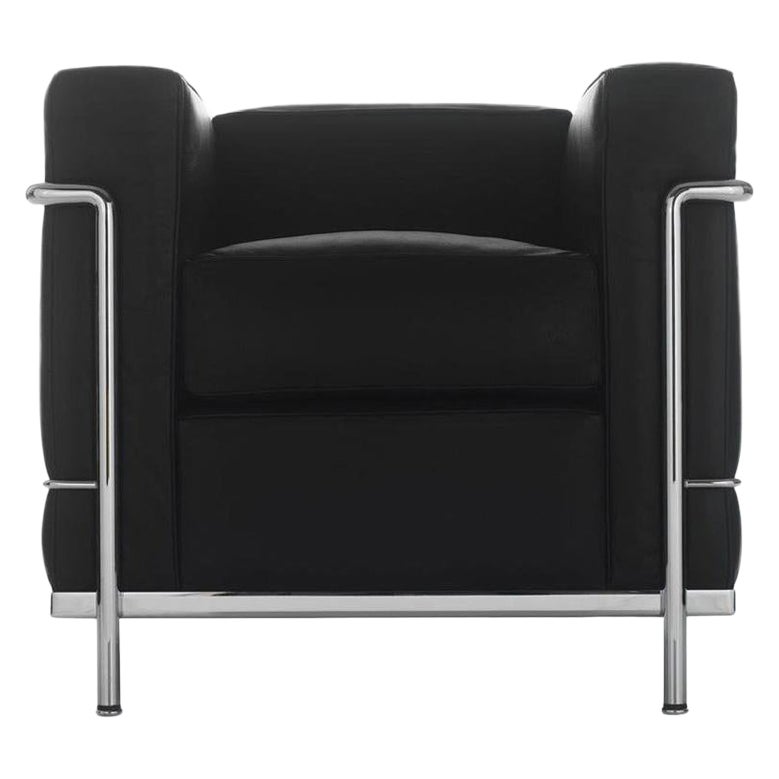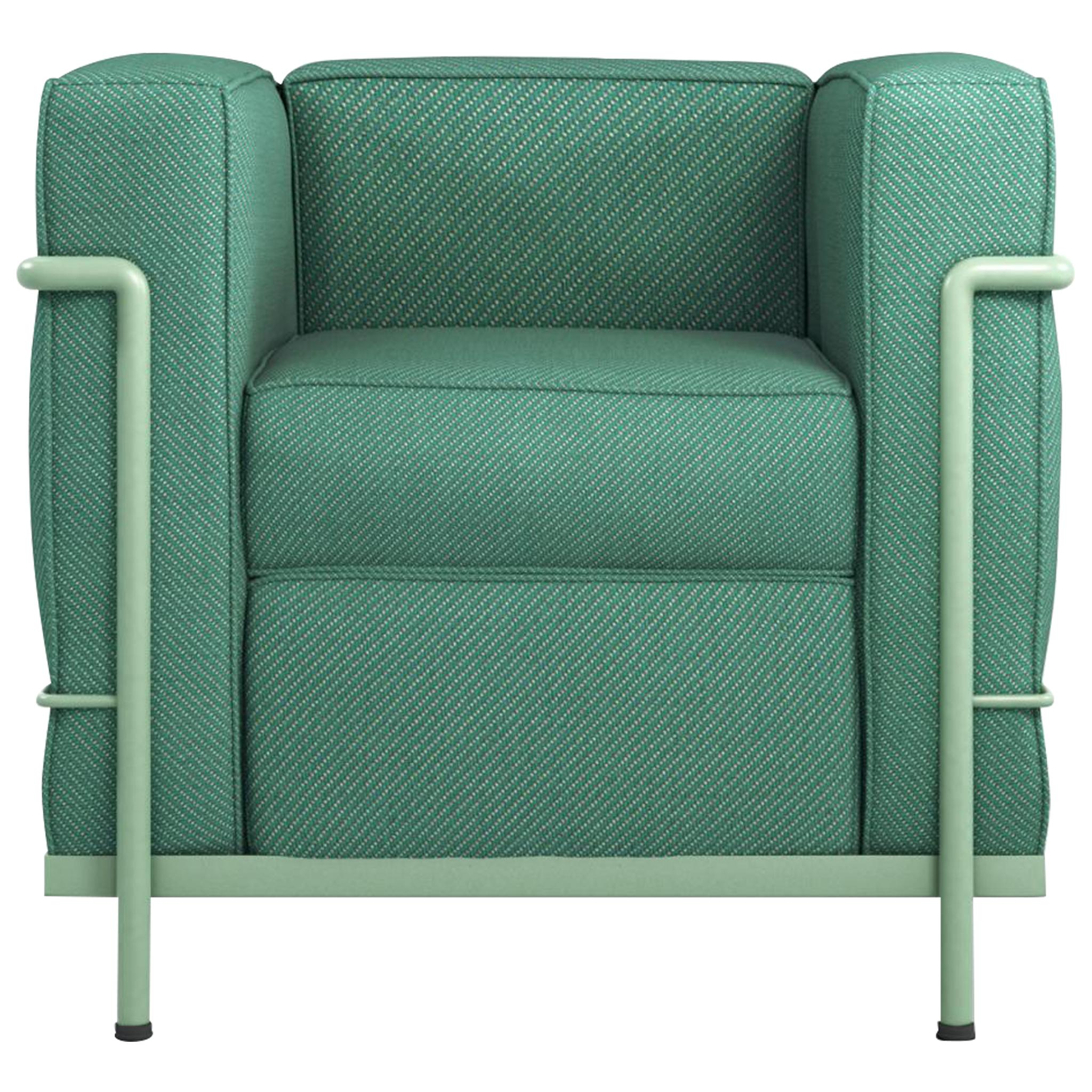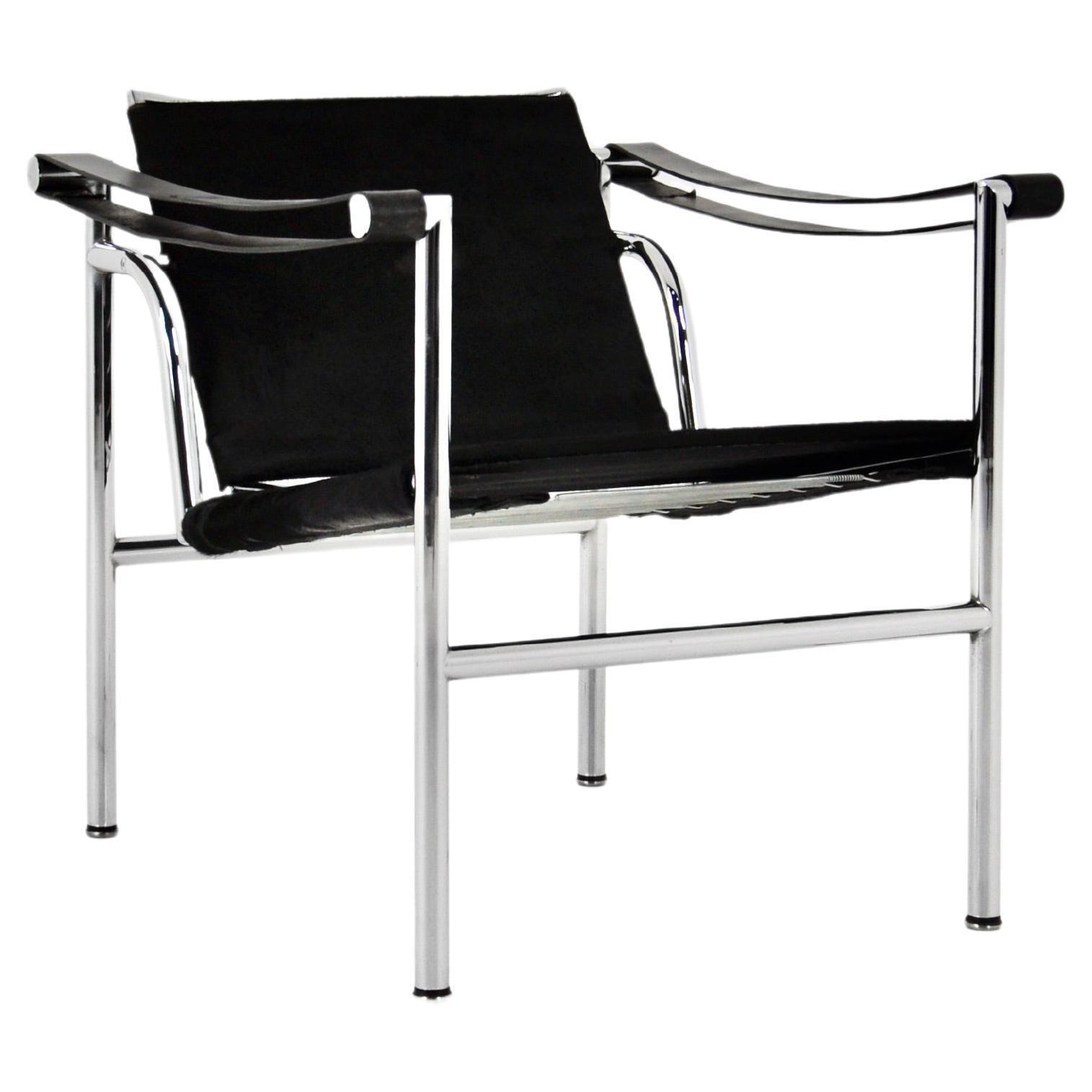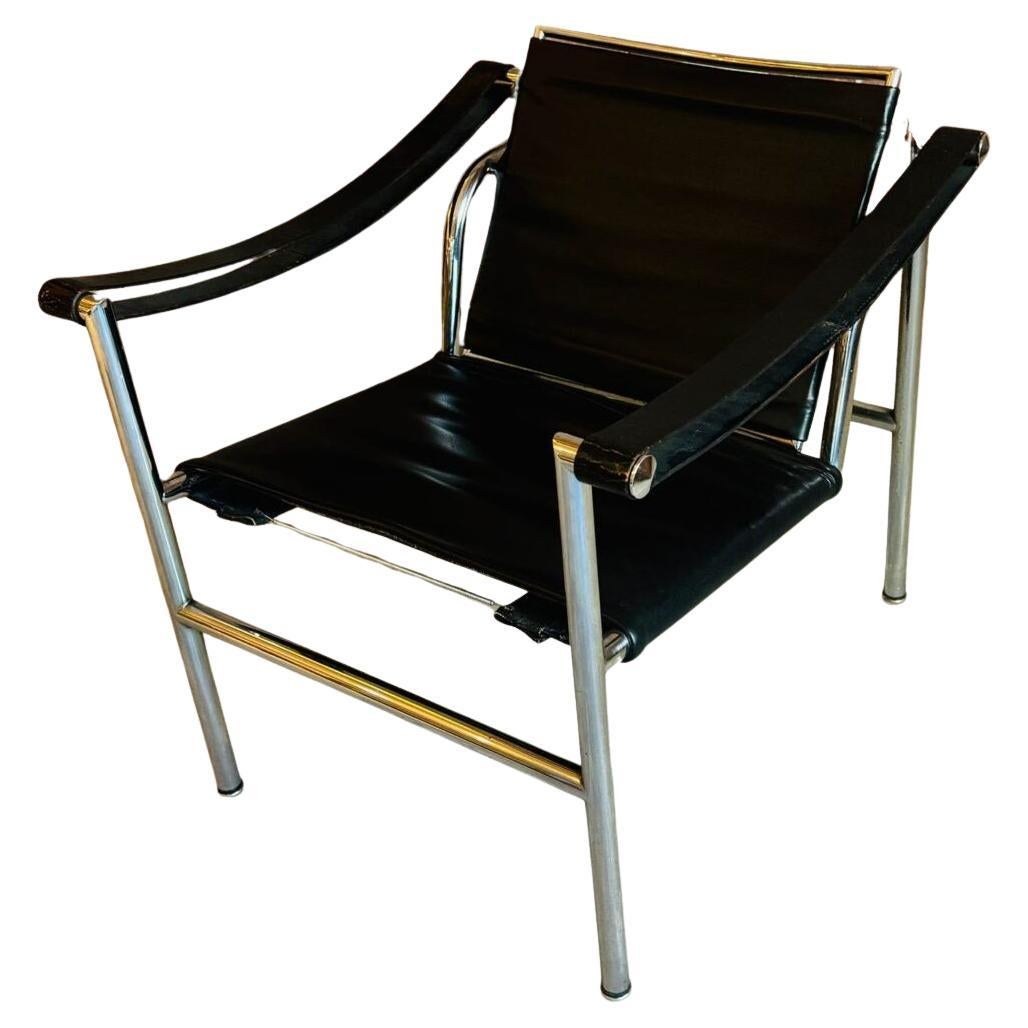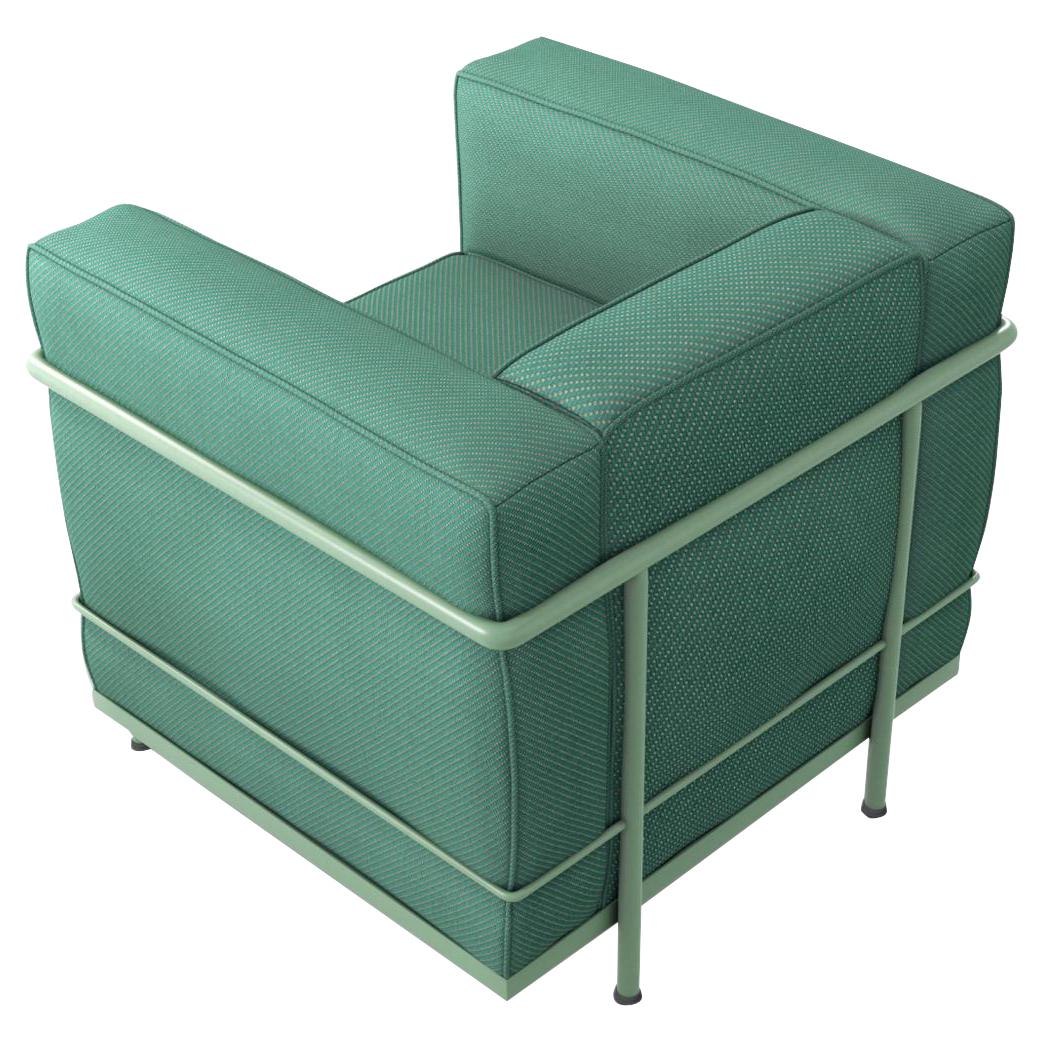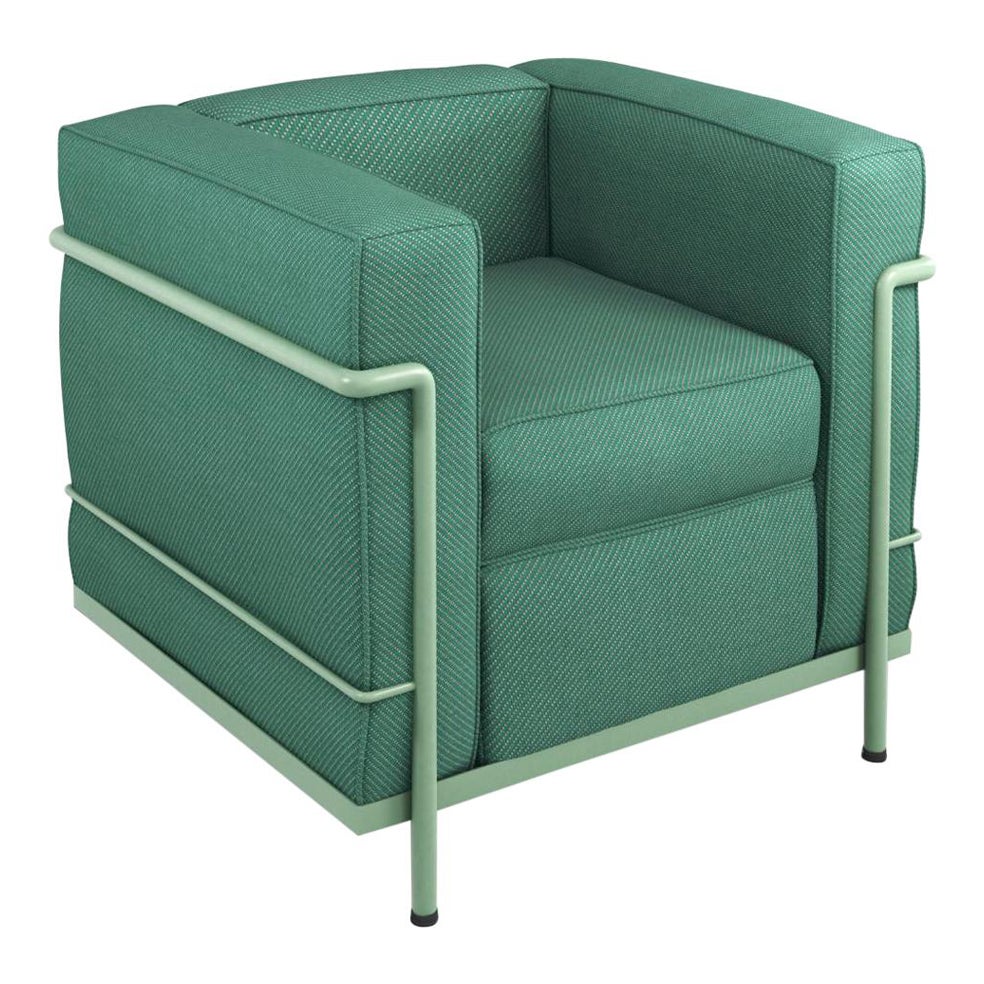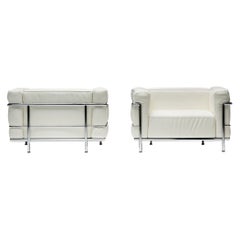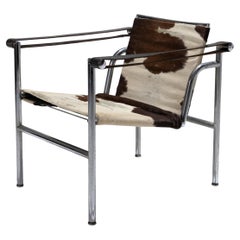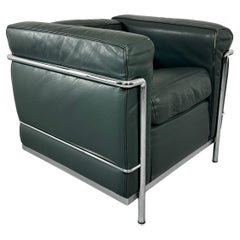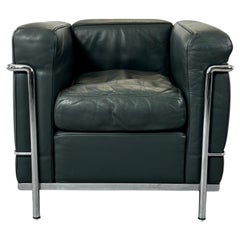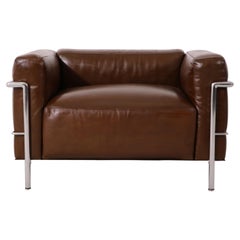
Armchair LC 3 Le Corbusier Produced by Cassina in 1970
View Similar Items
Armchair LC 3 Le Corbusier Produced by Cassina in 1970
About the Item
- Creator:
- Dimensions:Height: 24.41 in (62 cm)Width: 38.98 in (99 cm)Depth: 28.75 in (73 cm)Seat Height: 18.9 in (48 cm)
- Materials and Techniques:
- Place of Origin:
- Period:
- Date of Manufacture:1970
- Condition:Refinished.
- Seller Location:Köln, DE
- Reference Number:1stDibs: LU7587231031442
Le Corbusier, Pierre Jeanneret, Charlotte Perriand Cassina
The trio of Charlotte Perriand, Le Corbusier and Pierre Jeanneret is known for its widely acclaimed and influential modernist furniture designs.
In the early 1920s, Charles-Édouard Jeanneret, the revered Swiss-French architect known professionally as Le Corbusier, entered into collaboration with his cousin, Pierre Jeanneret, who shared his grand vision for egalitarian building projects and interior design. They later recruited the pioneering young female architect Charlotte Perriand to join their venture.
Perriand's installation Bar sous le toit (“bar under the roof”), a recreation of part of her own apartment shown at the 1927 Salon d’Automne in Paris, caught Le Corbusier's attention and prompted the cousins to recruit her to work at their architecture practice. She would be tasked with designing interiors and furniture. Such status was rare for a woman at the time — in fact, when Perriand sought work at Le Corbusier’s atelier mere months before the exhibition, he famously dismissed her with a sexist remark.
The collective called their shared project l’équipement d'intérieur de l’habitation (“the interior equipment of the house”), and they designed furniture that remains celebrated today. The LC series of armchairs, lounge chairs and sofas, for example, saw the designers working with tubular chrome steel and plush foam cushions upholstered in leather. Bereft of ornament and prized for its functionality, the series is currently manufactured by Cassina. The cohort's LC4 chaise lounge was displayed at the 1929 Salon d’Automne, and the spare but sculptural seat — as well as the group’s other furnishings — influenced the likes of Willy Rizzo as well as a range of other modernist designers and furniture innovators.
Reportedly owing to political differences, the trio’s collaboration ended in 1937. Le Corbusier and Pierre continued working together, primarily in architecture.
In the early 1950s, at the invitation of Indian Prime Minister Jawaharlal Nehru, Le Corbusier and his cousin collaborated on a building project in Chandigarh, India. While the Chandigarh project is most frequently associated with Le Corbusier, he didn’t actually move to India and instead monitored progress during visits to the region. Pierre, however, was extensively involved. As the project’s first chief architect, Pierre remained onsite to oversee implementation of design and to coordinate construction of schools, government housing, shopping centers and more.
In 1940, Charlotte Perriand moved to Japan after France fell to Nazi forces. She was offered a position at the Japanese Ministry of Trade and Industry as a consultant on the country’s industrial arts. While there, Perriand adopted many Japanese artistic principles and incorporated them into her own revolutionary furniture designs. She would also closely collaborate with self-taught French furniture designer Jean Prouvé in the years that followed.
Time has shown that some of the works attributed to the Jeanneret cousins are either Perriand’s own designs or she was an uncredited contributor.
On 1stDibs, find an array of vintage Charlotte Perriand, Le Corbusier and Pierre Jeanneret furniture, including tables, storage cabinets and lighting.
You May Also Like
1990s Italian Bauhaus Armchairs
Chrome
Mid-20th Century Modern Armchairs
Metal
Mid-20th Century Italian Bauhaus Armchairs
Chrome
Mid-20th Century Italian Bauhaus Armchairs
Chrome
Vintage 1970s Italian Modern Armchairs
Metal
2010s Italian Mid-Century Modern Armchairs
Steel
